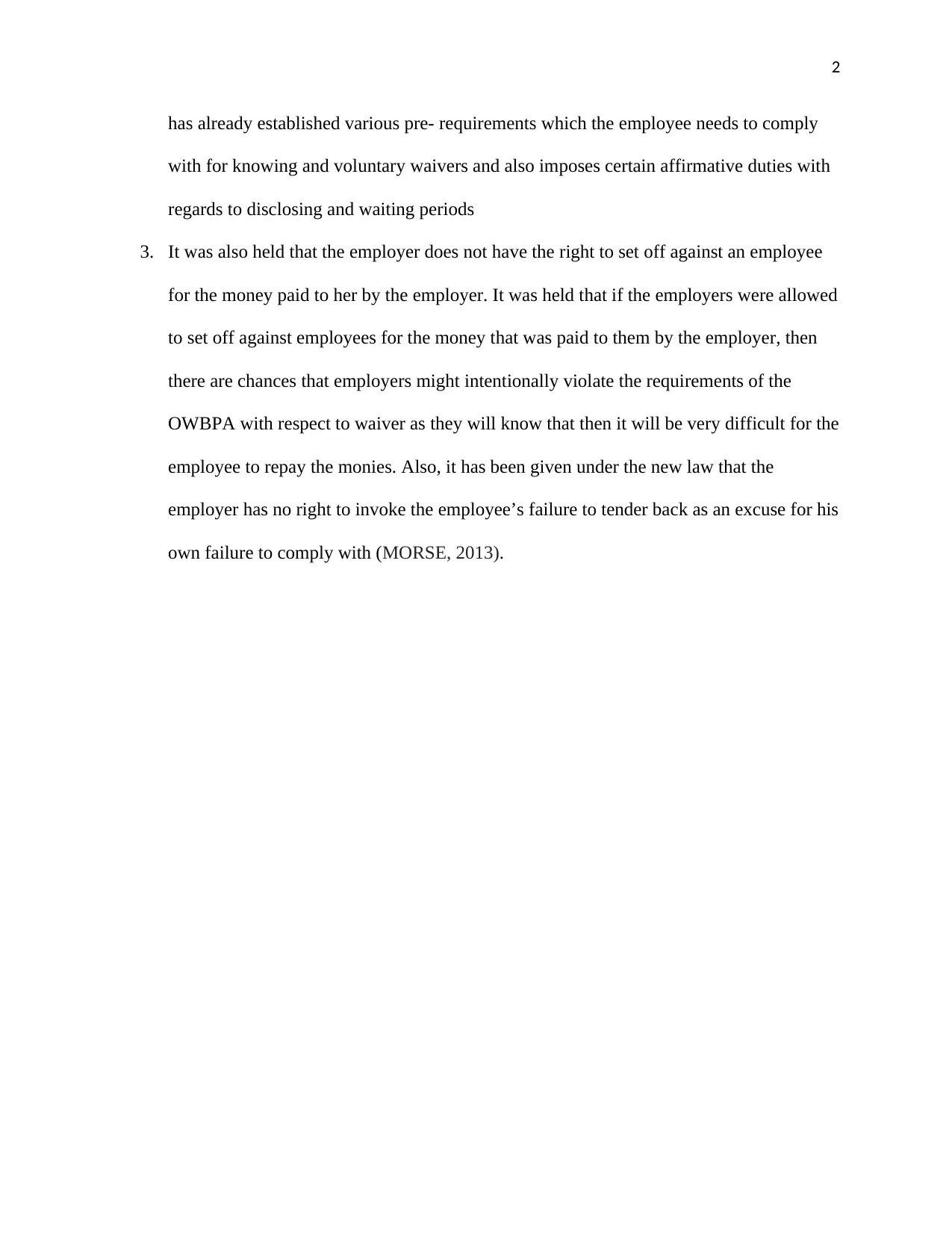ADEA Compliance and Waiver
VerifiedAdded on 2019/09/18
|4
|607
|352
Report
AI Summary
The case Oubre v. Entergy Operations, Inc. highlights the importance of compliance with the Older Workers Benefit Protection Act (OWBPA) requirements for waiver of Age Discrimination in Employment Act (ADEA) claims. The Supreme Court held that a release does not comply with OWBPA's requirements if it does not provide an employee with enough time to consider their options, seven days to change their mind, or make specific reference to ADEA claims. As such, the release cannot bar Oubre's ADEA claim and the employer cannot set off against the employee for money paid under the severance agreement.
Contribute Materials
Your contribution can guide someone’s learning journey. Share your
documents today.
1 out of 4
![[object Object]](/_next/static/media/star-bottom.7253800d.svg)





